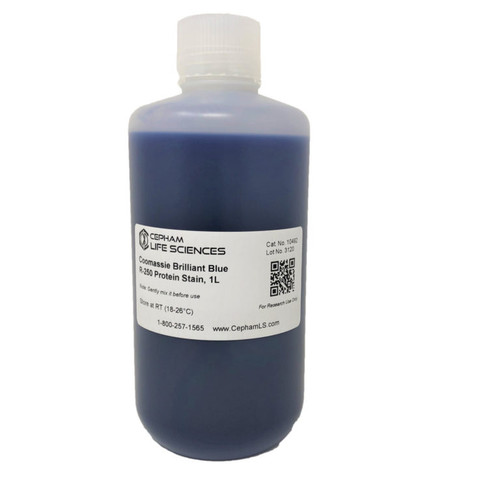Coomassie Brilliant Blue R-250 is one of the most commonly available and utilized form of Coomassie dye, which is a key component of various colorimetric protein gel stains.
Coomassie Blue is a chemical form of a disulfonated triphenylmethane compound that is commonly employed as the basis of stains for protein detection and quantitation in gel electrophoresis and Bradford-type assay reagents.
Coomassie Blue R-250 (red-tinted) form lacks two methyl groups that are present in the G-250 (green-tinted) form, also referred to as colloidal Coomassie dye.
Protein-binding causes the dye to change from reddish-brown to bright blue (absorption maximum equals 595 nm).
Applications/ Features:
-
Easy detection; develops intensely colored complexes with proteins
-
High sensitivity; can determine as little as 0.5 µg/cm2 of protein present in a gel matrix
-
Reversible staining; anion of Coomassie Brilliant Blue formed in the acidic staining medium combines with the protonated amino groups of proteins by electrostatic interaction; resulting complex is reversible under the proper conditions
-
Differentiation between bound/unbound dye; when dissolved in 0.01M citrate buffer at pH 3.0, has an absorption maximum at 555nm; protein-dye complex is characterized by a peak slightly broader than that of the free dye with a maximum at 549 nm






